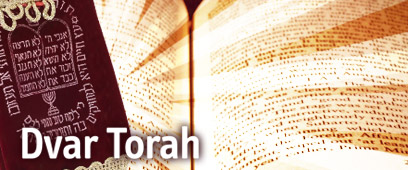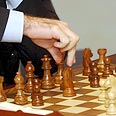

Are we pawns?
Photo: Reuters
Pharaoh was the ultimate villain. From his attempt to wipe out all male babies to his refusal to allow the Israelites to leave, he endlessly schemed and persecuted the Israelites. The Torah records in great detail the pain he caused the Israelites by not granting them freedom. But upon looking closer at the Exodus story, it actually becomes possible to argue in the Pharaoh's defense.
After G-d informs Moses about the plague he is about to bring upon the Egyptians for not allowing the Israelites to depart he says, "But Pharaoh will not allow you to leave as I have made him stubborn." Then do to Pharaoh's refusal, which came from the stubbornness G-d Himself had implanted in Pharaoh's heart, He punished Egypt further. How is this fair? If G-d made Pharaoh stubborn, what should Pharaoh be punished for this stubbornness? Surely, he should be punished for his evil and maniacal ways, but why should he be punished for refusing to allow the Israelites to leave. How is it his fault when G-d made him that way?
G-d made me like this
This problem also applies to us: Many times we are faced with our own negative attributes or behaviors and we think to our selves, "Hey, that's just the way I am, the way G-d made me." Just like G-d made Pharaoh stubborn he makes some of us lazy or rude or with some other deficiency. So it's not our fault if we are lazy….G-d made us this way!It is true that it may not be our fault that we might be lazy or rude, but it is our responsibility. G-d made us a certain way with inherent obstacles to overcome. This was Pharos's mistake and one of the reasons he was punished. G-d may have made him stubborn, but it was Pharos's choice to succumb to it. Deficiencies and obstacles may be dished out on us, but we are not supposed to take them, rather we're supposed to overcome them.
But what is the point in this? If G-d wanted us not to be a certain way, then why didn't he just make the way he wants us to become?
Chess analogy
Interestingly, we can find a solution by examining a chessboard. There are a few different types of chess pieces and each one has it's own unique ability. At first glance, the pawn probably seems like the lowliest piece on the board. It is the most "deficient" or flawed piece because it can only move one square at a time and only in one direction.However, the pawn had an advantage over all the other pieces because it can over come its "deficiencies." By reaching the end of the board, the pawn transforms from it's lowly nature and becomes the queen, the most powerful piece. After a lot of distance and a lot of challenge, the pawn transcends its limitations and becomes something immeasurably superior to it's previous incarnation.
We ourselves are like pawns. Although we have seemingly gigantic and unchangeable flaws and limitations built into our nature, we can change these. We all have untapped potential buried within ourselves and by reaching the end of the board, going the distance to change ourselves and overcome obstacles, we can become something greater than who we naturally are. G-d made us in a deficient way so that we could conquer these deficiencies and grow into our full potential. We shouldn't be like Pharaoh who succumbed to his limitations; rather we should utilize our limitations to propel ourselves into personal advancement.















